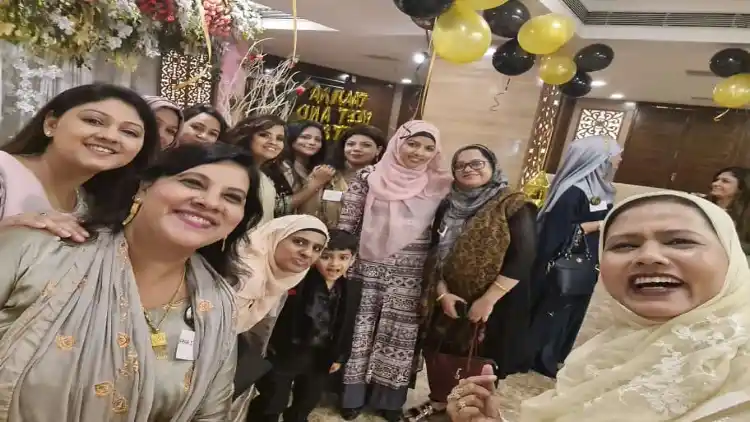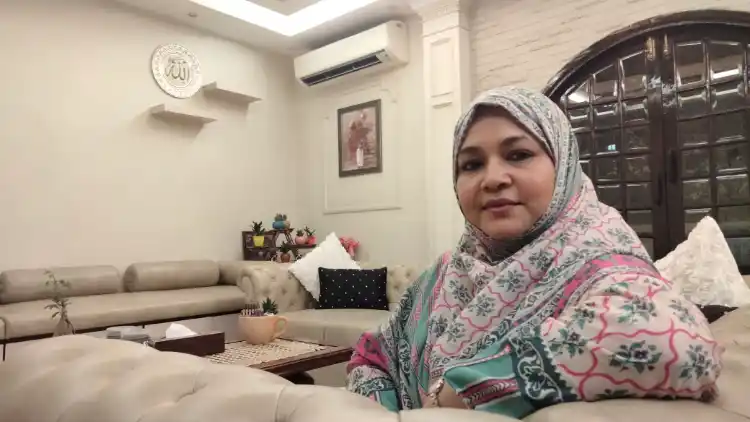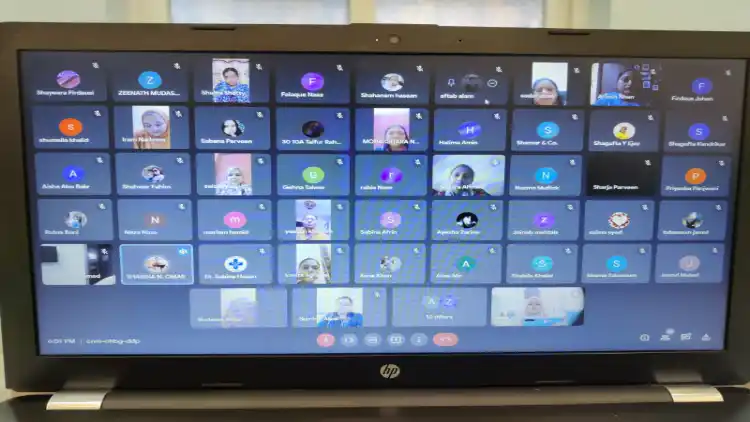
Mohammed Safi Shamsi
Around 20,000 women, most of them from Kolkata’s Muslim community, are sharing their professional expertise on a Facebook group, Tajira. The intense activity among the all-women and tech-backed organisation has ushered in a mini-revolution over the last two years, claims its founder Rukhshi Kadiri Elias.
Like, a mother of four is a home chef and after joining the group is making her way into the catering business. A second important member of Tajira has climbed up the social circles, registering her organisation that is into social service. “We also have a member who helps women learn how to drive a scooty. She picked the skill with her husband’s support. Now some ladies train others,” Rukhshi tells me.
Tajira started as a group on Facebook in 2019, a little before the Covid pandemic had surfaced. Rukhshi has been working for Muslim women for years. A graduate in fine arts, she puts her post-graduate diplomas in fashion designing, and psychology to use in social work. A course on Islamic studies, that she completed helped her in understanding Muslim society.

Rukhshi, Fouder of Tajira
“I had well-established friends. Then there were ones who wanted to be in business but had no experience and also buyers. Initially, the idea was to encourage Muslim women to come forward and take up business. That’s what Tajira means, a businesswoman,” says Rukhshi. “Now we have experienced ladies from other communities too, who are already established. This also encourages women in the community.”
Tajira is an interesting case study on Muslim women networking for business. Members represent different financial positions - from well-established entrepreneurs to housewives who are eager to offer chapatis for sale; professionals talking about boutiques, products, and services. Also, women are wanting to know about the vacancies for a maidservant or driver so that they can refer their mothers and brothers for the job.
Initially, many men were hesitant to see their wife – a member of the group – start working. But when the women took it onto themselves to pitch husbands’ businesses, and the attitudes started changing. “Housewives turned into businesswomen. Women were posting on behalf of their husbands. Jobs, food, people to take care of children of the Covid-infected parents - there were different types of queries. People were using the platform to offer help. Tajira became a community, rather than becoming just a business community,” said Rukhshi.
Initially, the response was slow - around 100 members, then 1,500 in a month, and 5,000 in a few months. There are about 20,000 women associated with it and over 800 membership requests pouring in daily.
There are offline initiatives to strengthen the bonding. Occasional interaction with members, training of first-time smartphone users, and signing on the Facebook platform, are part of the efforts to help tech-challenged individuals. A large number of sellers have now been verified and offered identification numbers. While there is no fees for membership of Tajira, attending webinars requires payment of a nominal fee.

An online meeting of Tajira in progress
Women are sharing all kinds of business information. “You can share info on what’s halal and legal,” adds Rukhshi. Home chefs are eager to cook a degh (pot) of biryani for small gatherings. Women from all parts of Kolkata, and India, are a part of the network. While English is the language for posts, non-English speakers often key in Hindi words using Roman alphabet.
“The only reason to keep it closed to women is to make them feel comfortable. There are questions specific to their needs. In a mixed group, it’s not possible to raise such queries,” says Rukhshi explaining why men are not members of the group.
Tajira intends to move to the next level. Panels of professionals - on health, legal, and other gender-specific issues – are being set up.
Giving a few hours to Tajira daily, Rukhshi and her small social media team have built a small and yet strong network. “We want to register Tajira as an organisation, next. I am less of a business lady myself, but I represent a business family. I may not be an athlete but can offer my bit to coach others who can jump over the hurdles to make it to the other side of the finishing line,” Rukhshi says.
